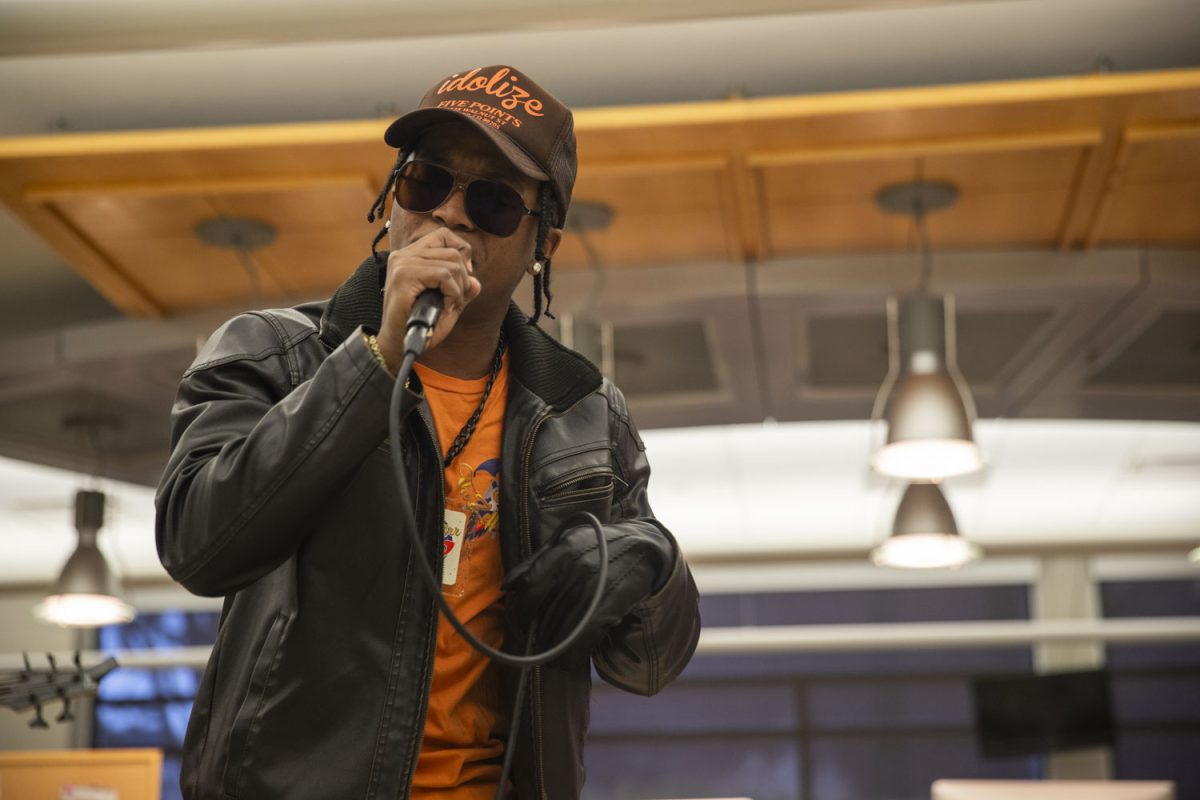In 1977, voters elected a man to the San Francisco Board of Supervisors. After serving only 11 months, he was assassinated. The reason? Many believe it’s because Harvey Milk was gay.
Some see Milk as a martyr for the gay-rights movement. Last year, the biopic Milk (starring Sean Penn) carried the politician’s message of tolerance to a wider audience.
Today, the UI Center for Human Rights and the Landlocked Film Festival team up to bring a series of films that explore human-rights issues. The series launches with a screening of Milk which will take place at 7 p.m. in the Main Library’s Shambaugh Auditorium. Admission is free.
“It’s been a wonderful undertaking,” Human Rights Center Deputy Director Amy Weismann said. “It’s a fun and engaging way to mark our anniversary and bring some attention to some current and interesting human-rights issues around the world and in this country.”
The film series is part of the center’s 10th-anniversary celebration. In addition to Milk, Voices from Inside: Israelis Speak, Garbage Dreams, and Pray the Devil Back to Hell will be shown this week.
Other events include a playwriting contest in which each play submitted must revolve around a human-rights issue and a concert recital focusing on the Holocaust. A full schedule of events is available on the center’s website: international.uiowa.edu/centers/human-rights.
Following each film in the series, a panel discussion will feature experts in each respective field.
Volunteer Aaron Hurlburt, a UI senior majoring in cinema and international studies, hopes that the discourse will reveal different ways in which citizens can get involved with each cause.
“The films are sort of a launching point for people to start thinking about [human-rights issues],” he said. “Once they have it on their minds, they can hear experts talk about it and go from there.”
Weismann stressed that the center is not trying to enforce an agenda but is providing information for viewers.
“It is not the role of an organization dedicated to education to tell people what to do,” she said. “This is an awareness-raising effort which is the crucial first step for any change to occur.”
At each screening, there will be literature for anyone wanting to know how to get involved and what on- and off-campus organizations he or she may contact. Weismann thinks film is an effective medium with which to connect these issues, because it is accessible by such a wide range of people.
However, she emphasized that there is more to each film than negativity.
“It’s not all about bad things that have happened,” she said “It’s also about realizing our basic humanity and realizing how great that is — and how that can work together.”






